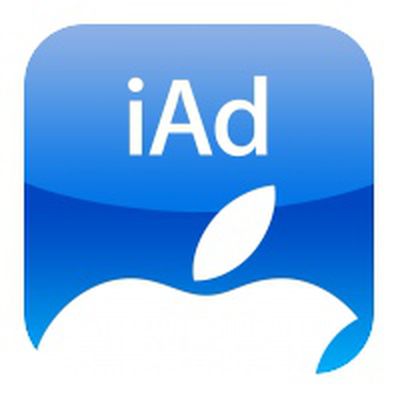 Apple's unwillingness to share large amounts of consumer data is hurting its iAd business, according to Madison Avenue media buyers that spoke with AdAge. The company is said to be "downright stingy" with the information it shares, too slow at developing ad products, and "too reticent to foster relationships."
Apple's unwillingness to share large amounts of consumer data is hurting its iAd business, according to Madison Avenue media buyers that spoke with AdAge. The company is said to be "downright stingy" with the information it shares, too slow at developing ad products, and "too reticent to foster relationships."
According to one executive, Apple doesn't have official sales targets for its iAd business, nor does the company operate a large sales team as advertising is viewed as more of an "afterthought."
Perhaps the biggest issue hindering their ad growth is that advertising is an afterthought, a blip on the balance sheet. It's still viewed by some as immaterial and potentially detrimental to the cash cows -- an ad is an impediment if it distracts a consumer from the "buy" button or mucks up a beautiful mobile app.
First introduced in 2010, Apple's iAd has never enjoyed much success. The service was initially designed to help developers earn money on the iOS platform, but it failed to attract developer interest and thus never garnered a significant amount of revenue.
With the launch of iTunes Radio, Apple revamped its iAd program, refocusing on the new music service. Apple's iAd team is now in charge of securing deals with major advertisers to support iTunes Radio, which is a much better money-earning opportunity for the company.
Still, advertising firms that work with Apple find it highly frustrating the company won't share information on consumer preference with advertising partners, preventing more targeted ad campaigns. Apple has a huge amount of customer data, including addresses, geographic preferences and app and music purchases, but because Apple does not use cookie-based tracking and ad targeting, advertisers must rely on Apple to deliver ads to a desired audience.
The lack of data both companies deliver is frustrating for marketers because these notoriously opaque giants sit atop incredible troves of information about what consumers actually buy and like, as well as who they are and where they live. One person familiar with the situation exec said Apple's refusal to share data makes it the best-looking girl at the party, forced to wear a bag over her head.
Though companies would like for Apple to share additional information, the company has still managed to score major advertising partners that are willing to take whatever they can get. When iTunes Radio debuted, it included advertisements from Macy's, McDonald's, Nissan, and Procter & Gamble.
Apple earned $258 million in U.S. mobile-ad revenue in 2013, an amount dwarfed by the advertising revenue taken in by companies like Google and Facebook. In 2013, Google generated $3.98 billion in mobile ad revenue, while Facebook garnered $1.53 billion, but the company will likely see growth in ad revenue as iTunes Radio gains popularity despite its unwillingness to cooperate fully with advertisers.























